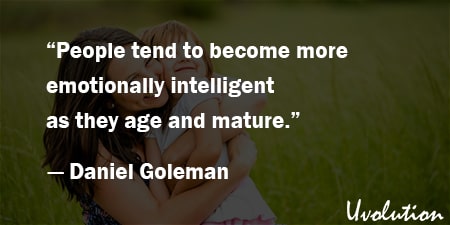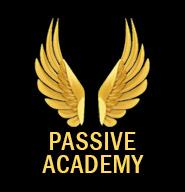Emotional Intelligence Summary
- Book by Daniel Goleman
The Book in 1 Sentences
Emotional Intelligence: Why It Can Matter More Than IQ
“What factors are at play, for example, when people of high IQ flounder and those of modest IQ do surprisingly well? I would argue that the difference quite often lies in the abilities called here emotional intelligence, which include self-control, zeal and persistence, and the ability to motivate oneself.” ~ Daniel Goleman
This book redefines what it means to be intelligent. I’ll share with you some of my favorite big ideas and I hope to encourage you grab the book, read more about emotional intelligence and start changing your life... 🙂
5 BIG Ideas
1. EQ is more important than IQ.
2. The main goal is to control your emotions and balance them, not to suppress them.
3. Passionate about something? --> Practice it for ten thousand hours --> You’ll become a MASTER
4. “There is perhaps no psychological skill more fundamental than resisting impulse.”
5. Hope is believing you have both the will and the way to accomplish your goals, whatever they may be.
Emotional Intelligence Summary
1. IQ Vs. EQ
“At best, IQ contributes about 20 percent to the factors that determine life success, which leaves 80 percent to other forces…
Even Richard Herrnstein and Charles Murray, whose book The Bell Curve imputes a primary importance to IQ, acknowledge this; as they point out, ‘Perhaps a freshman with an SAT math score of 500 had better not have his heart set on being a mathematician, but if instead he wants to run his own business, become a U.S. Senator or make a million dollars, he should not put aside his dreams.
The link between test scores and those achievements is dwarfed by the totality of other characteristics that he brings to life.’
My concern is with a key set of these ‘other characteristics,’ emotional intelligence: abilities such as being able to motivate oneself and persist in the face of frustrations; to control impulse and delay gratification; to regulate one’s moods and keep distress from swamping the ability to think to empathize and to hope.”
We often think that people with high IQ are more successful, happier, healthier… etc
But this is not true!
Have you ever seen someone with an average IQ rockin’ it?!
I DID…
So, how he/she did that?!
Goleman says: “a key set of these ‘other characteristics,’ emotional intelligence: abilities such as being able to motivate oneself and persist in the face of frustrations; to control impulse and delay gratification; to regulate one’s moods and keep distress from swamping the ability to think to empathize and to hope.”
Got it?!
2. Unlimited Ways to Succeed
“‘The time has come,’ [Howard] Gardner told me, ‘to broaden our notion of the spectrum of talents. The single most important contribution education can make to a child’s development is to help him toward a field where his talents best suit him, where he will be satisfied and competent.
We’ve completely lost sight of that. Instead we subject everyone to an education where, if you succeed, you will be best suited to be a college professor. And we evaluate everyone along the way according to whether they meet that narrow standard of success.
We should spend less time ranking children and more time helping them to identify their natural competencies and gifts, and cultivate those. There are hundreds and hundreds of ways to succeed and many, many, many different abilities that will help get you there.’”
Howard Gardner is the Harvard psychologist who came up with the idea of “multiple intelligences”—suggesting that rather than the narrow vision of IQ, we can see the range of intelligences we can all possess: from Logical, Linguistic, Visual/Spatial and Musical/Rhythmic to Bodily-kinesthetic, Interpersonal, Intrapersonal and Naturalist Intelligence.
So, there are unlimited ways to succeed and they don’t depend on your IQ! They depend on your passions, competencies and gifts… Just work on defining you gifts and find your unique path for fulfillment and your own definition for success… 🙂
3. Self-awareness
“Although there is a logical distinction between being aware of feelings and acting to change them, Mayer finds that for all practical purposes the two usually go hand-in-hand: to recognize a foul mood is to want to get out of it.”
Goleman discusses the importance of being aware of your feelings and being able to control and change them…
He also says: “Self-awareness is not an attention that gets carried away by emotions, overreacting and amplifying what is perceived. Rather, it is a neutral mode that maintains self-reflectiveness even amidst turbulent emotions.”
We all know that feelings like anxiety or depression are really painful, we don’t have to love or like them! But we have to accept them and move on with our lives.
Goleman says: “Anyone can become angry —that is easy. But to be angry with the right person, to the right degree, at the right time, for the right purpose, and in the right way—that is not easy.”
It’s not easy! But can be done…
4. Self-Mastery
“A sense of self-mastery, of being able to withstand the emotional storms that the buffeting of Fortune brings rather than being ‘passion’s slave,’ has been praised as a virtue since the time of Plato.
The ancient Greek word for it was sophrosyne, ‘care and intelligence in conducting one’s life; a tempered balance and wisdom,’ as Page DuBois, a Greek scholar, translates it. The Romans and early Christian church called it temperantia, temperance, the restraining of emotional excess.
The goal is balance, not emotional suppression: every feeling has its value and significance. A life without passion would be a dull wasteland of neutrality, cut off and isolated from the richness of life itself.
But, as Aristotle observed, what is wanted is appropriate emotion, feeling proportionate to circumstance. When emotions are too muted they create dullness and distance; when out of control, too extreme and persistent, they become pathological, as in immobilizing depression, overwhelming anxiety, raging anger, manic agitation.”
So, the goal is to take control of your emotions and balance them, not to suppress them, and to be able to feel the right emotion at the right time to the right degree.
Got it?! 🙂
5. Ten Thousand Hours
“Consider the role of positive motivation—the marshalling of feelings of enthusiasm, zeal, and confidence—in achievement.
Studies of Olympic athletes, world-class musicians, and chess grand masters find their unifying trait is the ability to motivate themselves to pursue relentless training routines…
likewise, the best violin virtuosos of the twentieth century began studying their instrument at around age five; international chess champions started on the game at an average age of seven, while those who rose only to national prominence started at ten.
Starting earlier offers a lifetime edge: the top violin students at the best music academy in Berlin, all in their early twenties, had put in ten thousand hours’ lifetime practice, while the second-tier students averaged around seventy-five hundred hours.
What seemed to set apart those at the very top of competitive pursuits from others of roughly equal ability is the degree to which, beginning early in life, they can pursue an arduous practice routine for years and years. And that doggedness depends on emotional traits—enthusiasm and persistence in the face of setbacks—above all else.”
Passionate about something? --> Practice it for ten thousand hours --> You’ll become a MASTER.
That’s it! The more you do something the more you master it…
So, what’s your passion? Are you working enough on it?!

GET Blinkist 7 Days FREE Trial
3000+ Book Summaries
(Audio and Text)
6. Emotional Intelligence is a Master Aptitude
“To the degree that our emotions get in the way of or enhance our ability to think and plan, to pursue training for a distant goal, to solve problems and the like, they define the limits of our capacity to use our innate mental abilities, and so determine how we do in life.
And to the degree to which we are motivated by feelings of enthusiasm and pleasure in what we do—or even by an optimal degree of anxiety—they propel us to accomplishment.
It is in this sense that emotional intelligence is a master aptitude, a capacity that profoundly affects all other abilities, either facilitating or interfering with them.”
So, our emotions either facilitate or interfere with whatever we’re doing, not our IQ!
Goleman says: “Students who are anxious, angry, or depressed don’t learn; people who are caught in these states do not take in information efficiently or deal with it well.”
And he also says: “Hope was a better predictor of their first-semester grades than were their scores on the SAT.”
7. Impulse Control
“Just imagine you’re four years old, and someone makes the following proposal: If you’ll wait until after he runs an errand, you can have two marshmallows for a treat. If you can’t wait until then, you can have only one—but you can have it right now.
It is a challenge sure to try the soul of any four-year-old, a microcosm of the eternal battle between impulse and restraint, id and ego, desire and self-control, gratification and delay.
Which of these choices a child makes is a telling test; it offers a quick reading not just of character, but of the trajectory that child will probably take through life.”
Goleman calls this impulse control and he says about it: “There is perhaps no psychological skill more fundamental than resisting impulse.”
Goleman says about this test that delaying gratification was “twice as powerful a predictor of what their SAT scores will be as is IQ at age four; IQ becomes a stronger predictor of SAT only after children learn to read.”
So, are you willing to resist impulses and sustain your attention? - whether it’s studying for a test, building a business or whatever you’re doing!
Remember that your reward will be greater! 🙂
8. Worrying
“The number of worries that people report while taking a test directly predicts how poorly they will do on it.
The mental resources expended on one cognitive task—the worrying—simply detract from the resources available for processing other information; if we are preoccupied by worries that we’re going to flunk the test we’re taking, we have that much less attention to expend on figuring out the answers.
Our worries become self-fulfilling prophecies, propelling us toward the very disaster they predict.”
Worrying is designed by our unconscious to keep us safely within our “Comfort Zone”, and that hinders us from progressing and succeeding in our lives!
That’s it!
9. Hope
“Hope, modern researchers are finding, does more than offer a bit of solace amid affliction; it plays a surprisingly potent role in life, offering an advantage in realms as diverse as school achievement and bearing up in onerous jobs.
Hope, in a technical sense, is more than the sunny view that everything will turn out all right. Snyder defines it with more specificity as ‘believing you have both the will and the way to accomplish your goals, whatever they may be.’”
So, do you believe you have both the will and the way to accomplish your goals, whatever they may be?
I hope your answer is yes… And if not, try harder and learn more about emotional intelligence and I’m sure you can MASTER this 🙂
That was my Emotional Intelligence summary, a very quick look at this great book. If you haven’t read it yet and you’re interested in it, get a copy. There is a HUGE amount of wisdom and life-changing ideas in this book, and we’ve only touched on a tiny bit of it.
Buy The Book: Emotional Intelligence by Daniel Goleman

GET Blinkist 7 Days FREE Trial
3000+ Book Summaries
(Audio and Text)






